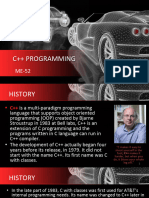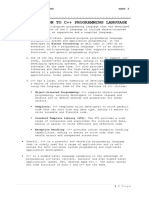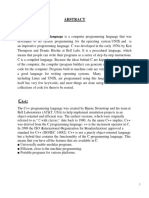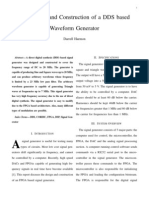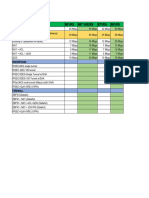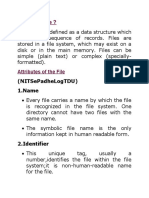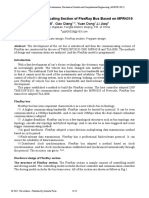0% found this document useful (0 votes)
4 views35 pagesProgramming Language
C++ is a statically typed, compiled, general-purpose programming language that supports procedural, object-oriented, and generic programming. Developed by Bjarne Stroustrup in 1979, it was initially called 'C with classes' before being renamed C++ in 1983. C++ features include object-oriented programming, portability, and a rich set of standard libraries, but it also has disadvantages such as complexity and lack of built-in garbage collection.
Uploaded by
Ezekiel Cooley Van SorianoCopyright
© © All Rights Reserved
We take content rights seriously. If you suspect this is your content, claim it here.
Available Formats
Download as PPTX, PDF, TXT or read online on Scribd
0% found this document useful (0 votes)
4 views35 pagesProgramming Language
C++ is a statically typed, compiled, general-purpose programming language that supports procedural, object-oriented, and generic programming. Developed by Bjarne Stroustrup in 1979, it was initially called 'C with classes' before being renamed C++ in 1983. C++ features include object-oriented programming, portability, and a rich set of standard libraries, but it also has disadvantages such as complexity and lack of built-in garbage collection.
Uploaded by
Ezekiel Cooley Van SorianoCopyright
© © All Rights Reserved
We take content rights seriously. If you suspect this is your content, claim it here.
Available Formats
Download as PPTX, PDF, TXT or read online on Scribd
/ 35











































